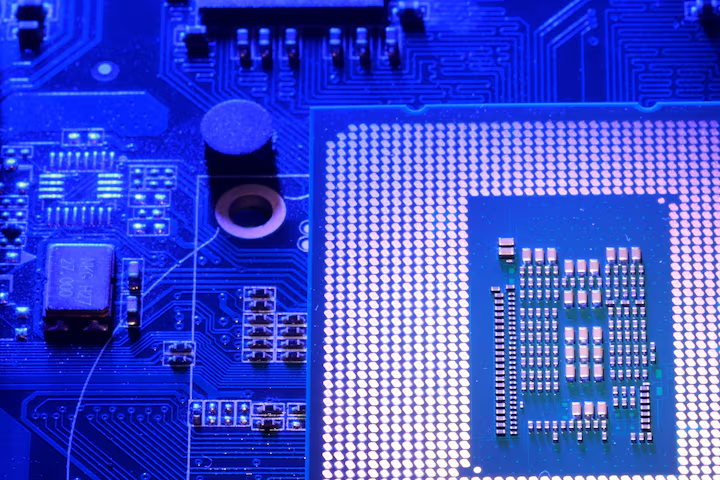The Trump administration is considering a sweeping new tariff plan that would tax foreign-made electronic devices based on the number of semiconductor chips inside them, three people familiar with the discussions told Reuters.
The proposal, which has not been publicly disclosed and could still change, would allow the Commerce Department to levy tariffs equal to a percentage of a product’s estimated chip value. The move is aimed at incentivizing companies to shift more manufacturing to the United States.
White House spokesperson Kush Desai said: “America cannot be reliant on foreign imports for the semiconductor products that are essential for our national and economic security.” He added that the administration is pursuing a “multi-faceted approach to reshoring critical manufacturing with tariffs, tax cuts, deregulation, and energy abundance.”
If implemented, the tariffs would affect a vast range of consumer goods—from toothbrushes to laptops—potentially pushing inflation higher at a time when U.S. price pressures remain above the Federal Reserve’s 2% target.
Michael Strain, an economist at the American Enterprise Institute, warned that the plan could significantly raise consumer costs: “Even domestically produced items would likely become more expensive, thanks to new tariffs on key inputs.”
The idea follows a string of trade actions under President Trump. On Thursday, the administration announced sweeping tariffs, including 100% duties on branded drugs and 25% levies on heavy-duty trucks. Earlier this year, probes were launched into pharmaceuticals and semiconductors, citing national security concerns over foreign reliance.
If the chip-count tariffs move forward, they would mark one of the most expansive efforts yet to reshape global electronics supply chains and accelerate the push for U.S.-based manufacturing.



0 Comments